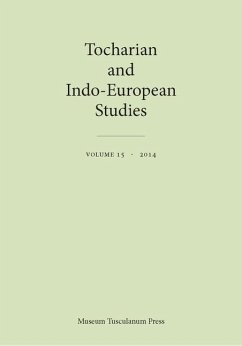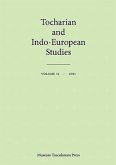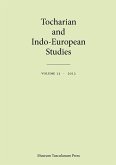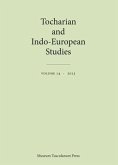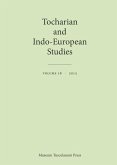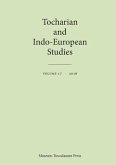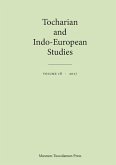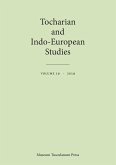Established in 1987, Tocharian and Indo-European Studies (TIES) is an international scholarly journal with contributions in English (primarily), German and French. The journal's central topic is formed by the two closely related languages Tocharian A and B, attested in Central Asian Buddhist manu-scripts dating from the second half of the first millennium AD. It focuses on philological and linguistic aspects of Tocharian, and its relation with the other Indo-European languages. Tocharian and Indo-European Studies is an international scholarly journal dedicated to the study of two closely related Indo-European languages, Tocharian A and B, attested in Central Asian manuscripts from the second half of the first millennium AD. This volume contains 11 articles by some of the world's leading specialists on Tocharian, as well as reviews of the most important publications in the field. The important article by Werner Winter was one of the last to be written by this outstanding scholar. Contents in Vol. 15: Douglas Q. Adams, "The polyvalent present-formative -äsk- in Tocharian B"; Douglas Q. Adams, "A note on Tocharian B taccimar"; Ching Chao-jung, "Perfumes in Ancient Kucha: On the word tuñe attested in Kuchean monastic accounts"; Hannes A. Fellner, "Tocharian special agents: The nt-participles"; Ilya Itkin, "Apologia for the brahmin B¿dhari: Some remarks on the meaning of the Tocharian A words ¿tare, pi- and m¿l"; Frederik Kortlandt, "The Tocharian personal endings"; Melanie Malzahn, "Tocharian A ¿orki 'fear' and two other TA scary words"; Dieter Maue, "An innocent abroad: Reflections on PK DA M.507 (40-42) b 4-6"; Ogihara Hirotoshi, "Fragments of secular documents in Tocharian A"; Michaël Peyrot, "Notes on Tocharian glosses and colophons in Sanskrit manuscripts I"; Georges-Jean Pinault, "An etymological note about the Tocharian root tätk- 'to extend'"; Georges-Jean Pinault, "The 'one night-and-day observance' of lay-followers in Tocharian Buddhism."

